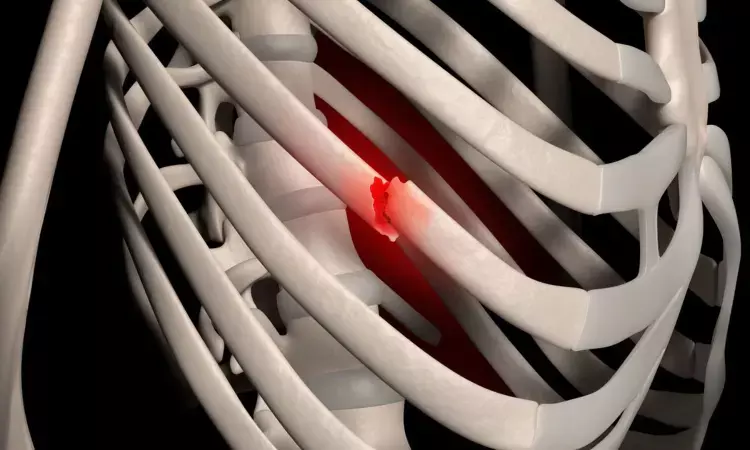- Home
- Medical news & Guidelines
- Anesthesiology
- Cardiology and CTVS
- Critical Care
- Dentistry
- Dermatology
- Diabetes and Endocrinology
- ENT
- Gastroenterology
- Medicine
- Nephrology
- Neurology
- Obstretics-Gynaecology
- Oncology
- Ophthalmology
- Orthopaedics
- Pediatrics-Neonatology
- Psychiatry
- Pulmonology
- Radiology
- Surgery
- Urology
- Laboratory Medicine
- Diet
- Nursing
- Paramedical
- Physiotherapy
- Health news
- Fact Check
- Bone Health Fact Check
- Brain Health Fact Check
- Cancer Related Fact Check
- Child Care Fact Check
- Dental and oral health fact check
- Diabetes and metabolic health fact check
- Diet and Nutrition Fact Check
- Eye and ENT Care Fact Check
- Fitness fact check
- Gut health fact check
- Heart health fact check
- Kidney health fact check
- Medical education fact check
- Men's health fact check
- Respiratory fact check
- Skin and hair care fact check
- Vaccine and Immunization fact check
- Women's health fact check
- AYUSH
- State News
- Andaman and Nicobar Islands
- Andhra Pradesh
- Arunachal Pradesh
- Assam
- Bihar
- Chandigarh
- Chattisgarh
- Dadra and Nagar Haveli
- Daman and Diu
- Delhi
- Goa
- Gujarat
- Haryana
- Himachal Pradesh
- Jammu & Kashmir
- Jharkhand
- Karnataka
- Kerala
- Ladakh
- Lakshadweep
- Madhya Pradesh
- Maharashtra
- Manipur
- Meghalaya
- Mizoram
- Nagaland
- Odisha
- Puducherry
- Punjab
- Rajasthan
- Sikkim
- Tamil Nadu
- Telangana
- Tripura
- Uttar Pradesh
- Uttrakhand
- West Bengal
- Medical Education
- Industry
Early SSRF Reduces Mortality and Improves Outcomes in Functionally Dependent Rib Fracture Patients: Study

Researchers have found in a new study that surgical stabilization of rib fractures (SSRF) significantly lowers in-hospital mortality in functionally dependent trauma patients with severe chest injuries, despite increased complications and ICU stays. Early SSRF further enhances outcomes by reducing ventilator time and hospital stay. Even late SSRF outperforms conservative treatment, though prospective studies are needed to confirm findings and refine patient selection. The study was published in the World Journal of Emergency Surgery by Yi-Yu Lin and colleagues.
It employed data from the American College of Surgeons-Trauma Quality Improvement Program (ACS-TQIP) from 2020 to 2022. The study analyzed 18,643 patients ≥16 years old with three or more rib fractures and an Abbreviated Injury Scale (AIS) >3 for the ribs or thoracic wall, who also had a recorded functional dependency before injury. Patients were separated into two categories: those who received SSRF (359 patients or 1.9%) and those who underwent conservative (non-operative) management.
For the sake of equitable comparison, propensity score matching was carried out in 3:1 proportion (294 SSRF vs. 883 conservative) based on age, comorbidities, injury severity score (ISS), and other variables related to trauma. The major outcomes assessed were in-hospital mortality, unplanned admission to the ICU, unplanned intubation, VAP, and incidence of ARDS. It was also done as a subgroup analysis comparing early SSRF (within 72 hours of injury) and late SSRF (after 72 hours).
Key Findings
• Patients treated with SSRF had significantly reduced in-hospital mortality (4.8% vs. 8.7%, p = 0.038), showing a nearly 45% decrease in mortality.
SSRF was also, however, linked to increased rates of some complications, including:
• Unplanned ICU admissions: 11.2% (SSRF) vs. 7.0% (conservative), p = 0.031
• Unplanned intubations: 10.2% vs. 6.1%, p = 0.026
• VAP incidence: 3.1% vs. 0.6%, p = 0.002
Overall survival was improved in SSRF patients. In addition, subgroup analysis showed that early SSRF compared with late SSRF was advantageous in a number of domains:
• Reduced days of ventilation (p = 0.013)
• Decreased length of ICU stay (p < 0.001)
• Decreased overall hospital length of stay (p < 0.001)
• Although no difference in mortality was noted between early and late SSRF, even late SSRF greatly diminished mortality over conservative treatment (3.8% vs. 10.9%, p = 0.023).
Operative stabilization of rib fractures greatly enhances survival results in functionally dependent trauma patients with multiple rib fractures and severe thoracic trauma. Early SSRF also provides other advantages through a decrease in ventilator days and hospital stay. Although there are more ICU-related complications, the overall effect of SSRF on survival makes it worth considering in this vulnerable group.
Reference:
Dr Riya Dave has completed dentistry from Gujarat University in 2022. She is a dentist and accomplished medical and scientific writer known for her commitment to bridging the gap between clinical expertise and accessible healthcare information. She has been actively involved in writing blogs related to health and wellness.
Dr Kamal Kant Kohli-MBBS, DTCD- a chest specialist with more than 30 years of practice and a flair for writing clinical articles, Dr Kamal Kant Kohli joined Medical Dialogues as a Chief Editor of Medical News. Besides writing articles, as an editor, he proofreads and verifies all the medical content published on Medical Dialogues including those coming from journals, studies,medical conferences,guidelines etc. Email: drkohli@medicaldialogues.in. Contact no. 011-43720751


